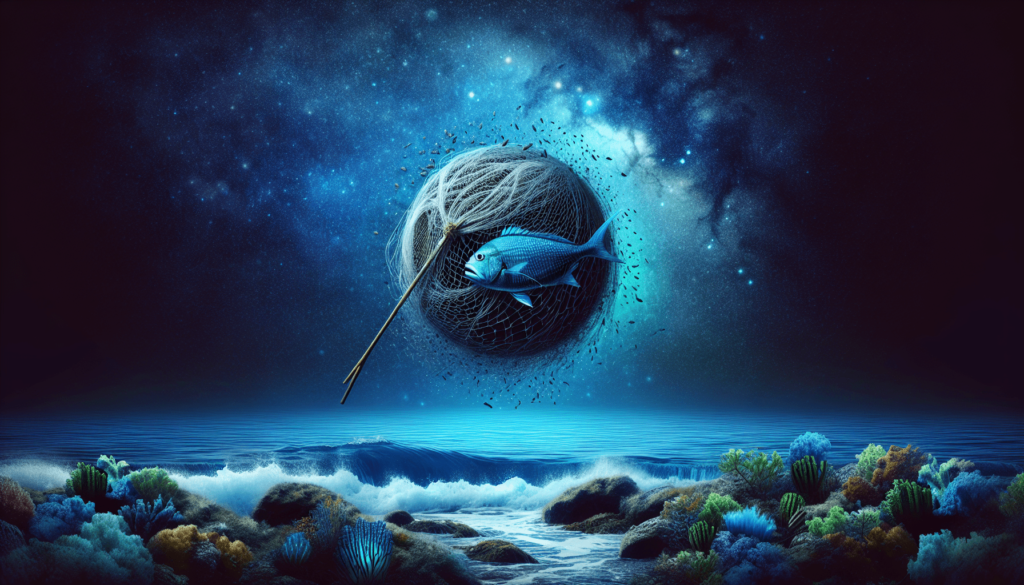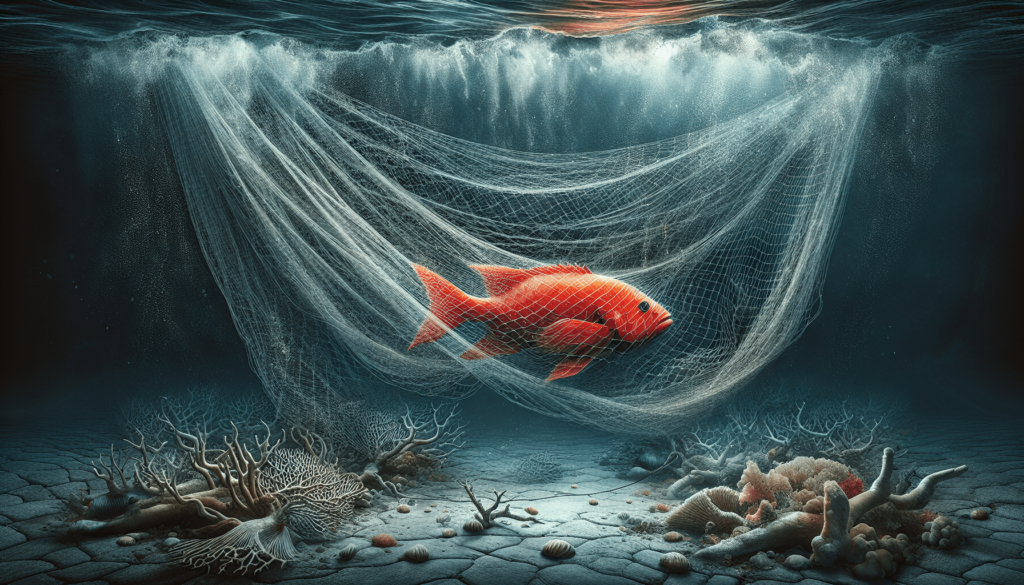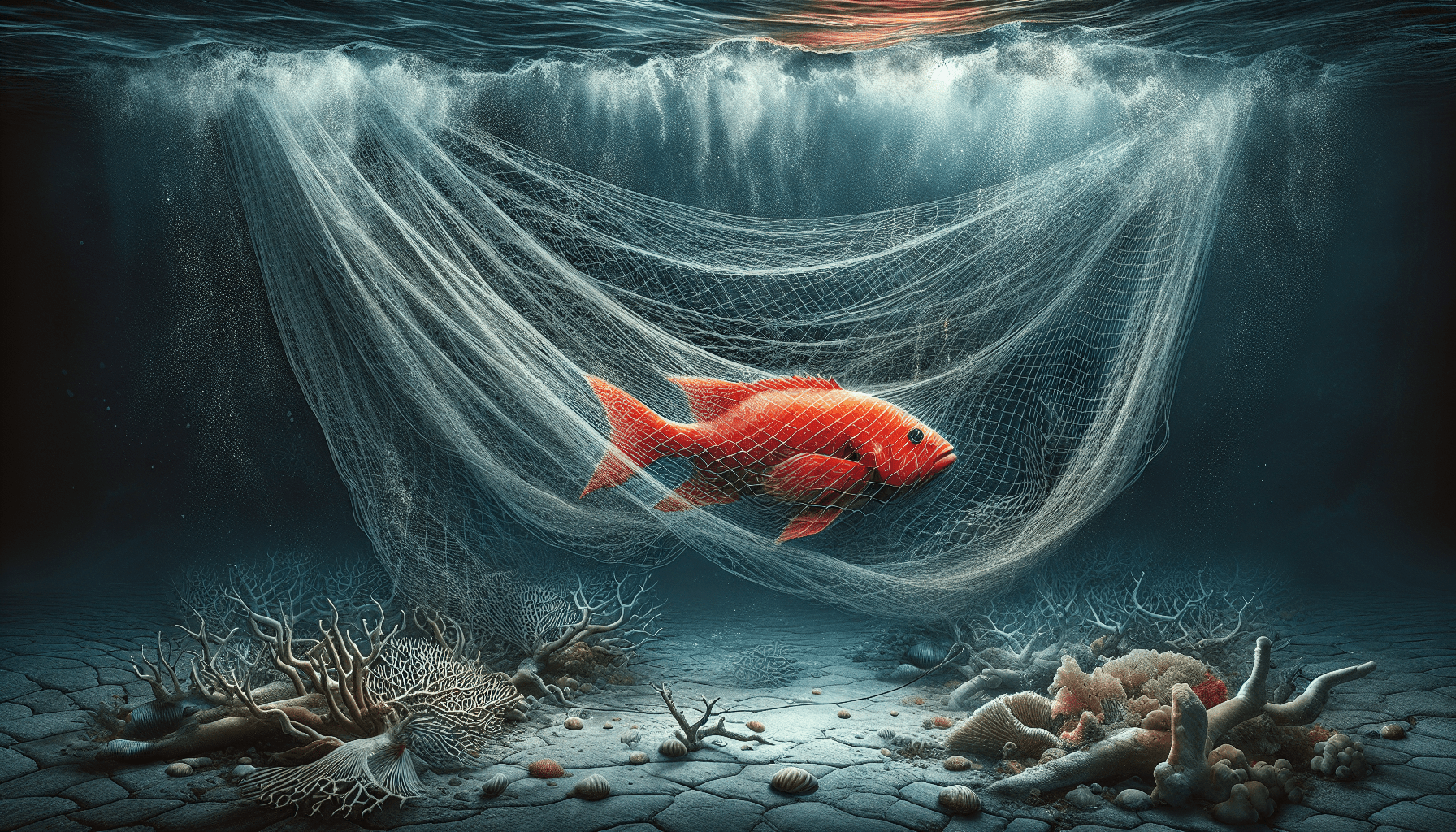Imagine a vast expanse of sparkling blue waters, teeming with an incredible diversity of marine life. Now, picture the delicate balance of this vibrant ecosystem disrupted by one single activity – overfishing. Yes, it may be hard to believe, but the impact of overfishing on marine ecosystems is far-reaching and alarming. As we dive into the depths of this article, we will uncover the devastating effects of overfishing on not only the fish populations but also the entire marine food web, habitats, and the livelihoods of countless people who depend on these precious ocean resources. Brace yourself for an eye-opening exploration into the consequences of overfishing and discover what we can do to protect these invaluable ecosystems.

Introduction
Welcome to this comprehensive article on the impact of overfishing on marine ecosystems. In this article, we will explore the definition of overfishing, the different types of overfishing, and the various consequences it has on our oceans. We will discuss the depletion of fish stocks, the loss of biodiversity, the disturbance of food chains, as well as the economic, environmental, and human impacts of overfishing. Finally, we will delve into sustainable fishing solutions that can help mitigate the negative effects of overfishing.
Definition of Overfishing
Overfishing occurs when the rate at which fish are caught exceeds their natural reproduction rate, leading to a decline in fish populations. It is a result of excessive and unsustainable fishing practices that can have severe consequences for both marine ecosystems and humans. Overfishing can be driven by both commercial fishing operations and recreational fishing activities, and it is a global problem that threatens the health and sustainability of our oceans.
Types of Overfishing
There are several types of overfishing that contribute to the decline of fish populations and disrupt marine ecosystems. One of the most common types is called “growth overfishing,” which occurs when fish are harvested before they have a chance to reproduce, preventing the next generation from replenishing the population. Another type is “recruitment overfishing,” where fishing pressure reduces the number of young fish entering the population, further exacerbating the decline. Additionally, “ecosystem overfishing” refers to the excessive removal of certain fish species that serve important roles in maintaining the balance of the ecosystem.

Depletion of Fish Stocks
One of the most significant consequences of overfishing is the depletion of fish stocks. As fish populations decline due to excessive fishing pressure, it becomes increasingly difficult for them to recover. This depletion not only affects the targeted species but also has a cascading effect on other marine organisms that depend on them for food and habitat. Over time, the loss of fish stocks can lead to the collapse of entire ecosystems, disrupting the delicate balance that sustains marine life.
Loss of Biodiversity
Overfishing also contributes to the loss of biodiversity in marine ecosystems. When specific fish species are overexploited, the variety of species in an area decreases, leading to a reduction in overall biodiversity. This loss of biodiversity has far-reaching consequences, as each species plays a vital role in the functioning of the ecosystem. From filtering water and controlling algal blooms to providing nurseries for other species, the loss of any one species can have profound effects on the entire ecosystem.
Disturbance of Food Chains
The disturbance of food chains is another significant impact of overfishing. By removing predatory fish from the ecosystem, overfishing can disrupt the natural balance of predator-prey relationships. This disruption can result in an explosion of prey species, leading to a decrease in their population sizes, or it can lead to a decrease in prey species, impacting the predators higher up the food chain. These disruptions can have widespread effects on the entire ecosystem, creating imbalances that reverberate through various trophic levels.
Economic Impact
The economic impact of overfishing is substantial. The decline in fish stocks directly affects the fishing industry, reducing catch sizes and posing a threat to the livelihoods of those who depend on fishing for their income. Moreover, the collapse of fish populations can lead to a decline in fish markets, resulting in significant economic losses for fishing communities. Additionally, overfishing can lead to the loss of jobs and the decline of businesses that rely on a healthy fishing industry, such as restaurants and tourism enterprises.
Environmental Impact
The environmental impact of overfishing extends beyond the depletion of fish stocks and the disturbance of food chains. Unsustainable fishing practices, such as the use of destructive fishing gear or bottom trawling, can cause habitat destruction and damage fragile marine ecosystems. These practices can harm coral reefs, seafloor habitats, and other critical marine environments, further exacerbating the decline of marine biodiversity. Additionally, overfishing can lead to the accumulation of pollutants in fish, posing risks to both human and ecosystem health.
Human Impact
Overfishing not only affects marine ecosystems but also has significant impacts on human populations. When fish stocks decline, it threatens the food security of coastal communities and indigenous peoples who rely heavily on fisheries for sustenance. The loss of fishing livelihoods can also lead to economic instability and poverty in these communities, further exacerbating social challenges. Additionally, the decline of fish populations can impact cultural traditions and practices tied to fishing, affecting the cultural heritage of coastal communities.
Sustainable Fishing Solutions
To address the negative impacts of overfishing, sustainable fishing solutions are crucial. Implementing science-based fisheries management practices, such as setting catch limits and enforcing fishing regulations, can help ensure the long-term sustainability of fish populations. The establishment of marine protected areas and fishery reserves can also allow fish stocks to regenerate and serve as sanctuaries for marine life. Additionally, promoting responsible fishing practices, such as using selective fishing gear and supporting eco-certified seafood, can contribute to sustainable fishing efforts.
In conclusion, the impact of overfishing on marine ecosystems is significant and wide-ranging. From the depletion of fish stocks and loss of biodiversity to disturbances in food chains, the consequences of overfishing are detrimental to both the environment and human communities. However, by implementing sustainable fishing solutions and prioritizing the long-term health of our oceans, we can work towards restoring and maintaining the balance of marine ecosystems for future generations. Let’s be conscious of our fishing practices and take steps to protect the rich biodiversity of our oceans.

